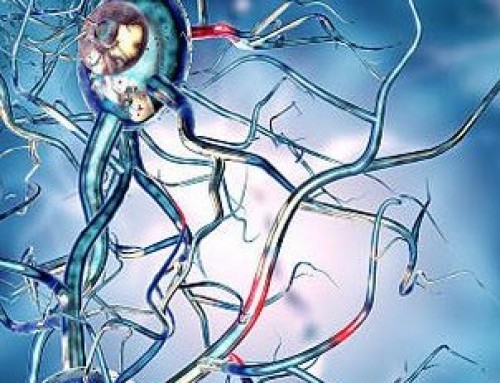Long-standing research shows stem cells may lead to remission of multiple sclerosis.
Multiple sclerosis is a disease with gradual onset affects. MS impacts an individual’s central nervous system, specifically their brain, spinal cord, and optic nerves. Multiple sclerosis is the result of a degradation of the fatty tissue called myelin that coats and protects nerves.
 Patients with MS have an immune system that attacks the myelin allowing direct damage to individual nerve fibers. Scar tissue begins to build on these nerves as more damage occurs. Your body uses those nerves for everything from muscle control, vision, and even balance. The symptoms can vary significantly from patient-to-patient. Additionally, those symptoms can become more severe over time.
Patients with MS have an immune system that attacks the myelin allowing direct damage to individual nerve fibers. Scar tissue begins to build on these nerves as more damage occurs. Your body uses those nerves for everything from muscle control, vision, and even balance. The symptoms can vary significantly from patient-to-patient. Additionally, those symptoms can become more severe over time.
Patients with MS tend to go through cycles of remission where symptoms ease, and a relapse stage where those symptoms can become much more pronounced or even debilitating.
The direct cause of MS is not clearly understood although some risk factors such as smoking or certain viral infections can trigger the disease.
Multiple Sclerosis Treatment
Modern treatments for MS have focused on extending remission periods and on slowing the degradation process of the nerve fibers. There is also some indication that a diet rich in vitamin D can help provide increased protection from MS.
In order to more aggressively treat the disease, scientists have turned to stem cells. Stem cells coupled with intense / high-dosage immunosuppressive therapy looks to be a future treatment option.
Researchers have been evaluating a series of clinical trials where patients were administered a high-dose immunosuppressive therapy (HDIT). Following the HDIT, patients are then provided a transplant of hematopoietic stem cells, the same as those found in umbilical cord blood.
Results from these trials are demonstrating that administering an HDIT followed by the stem cell transplant can result in a sustained relapse for people suffering from multiple sclerosis.
“…these five-year results suggest the promise of this treatment for inducing long-term, sustained remissions of poor-prognosis relapsing-remitting MS.” – Dr. Richard Nash, Research Lead
Patients were evaluated over the course of a five year study in an attempt to understand the long-term prognosis of this therapy.
- 69% of the participants experienced no further progression of disability or relapse of symptoms.
- The patients did not require or take any MS medications following the procedure.
These results were published in Neurology, by the American Academy of Neurology.
Dr. Anthony Fauci of the National Institute of Allergy and Infection Diseases had the following to say about the study:
“These extended findings suggest that one-time treatment with HDIT/HCT may be substantially more effective than long-term treatment with the best available medications for people with a certain type of MS. These encouraging results support the development of a large, randomized trial to directly compare HDIT/HCT to standard of care for this often-debilitating disease.”
The use of high-dose immunosuppressive therapy combined with hematopoietic stem cells seems to effectively reset the immune system for most patients.
This treatment may provide new hope to sufferers of MS if these results prove out as effective when tested across a larger group of patients.
Reference:
RA Nash et al. High-dose immunosuppressive therapy and autologous HCT for relapsing-remitting MS. Neurology DOI: 10.1212/WNL.0000000000003660 (2017).






